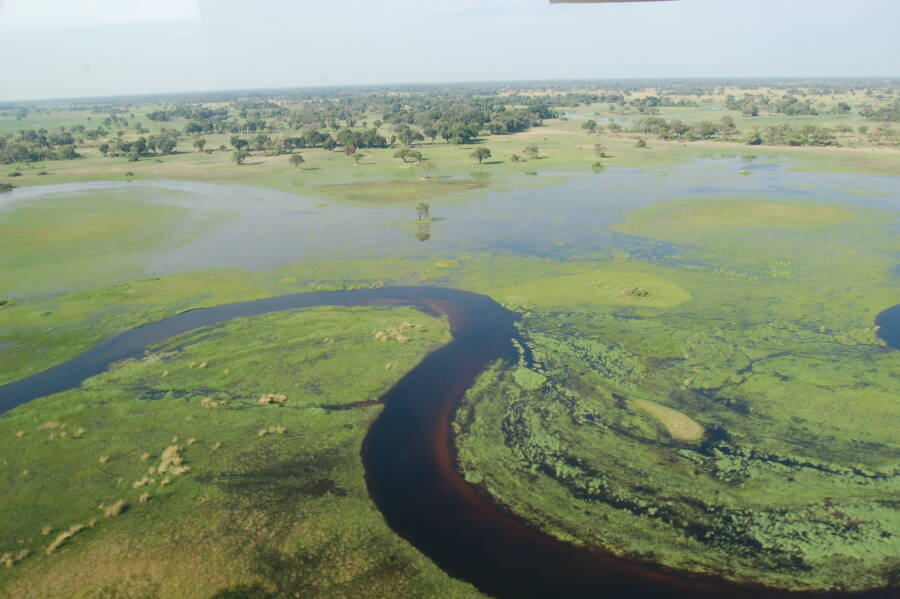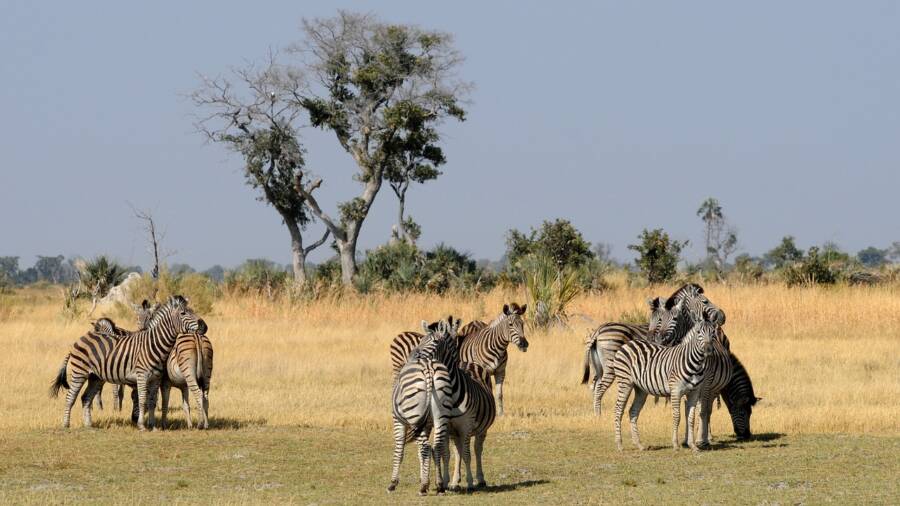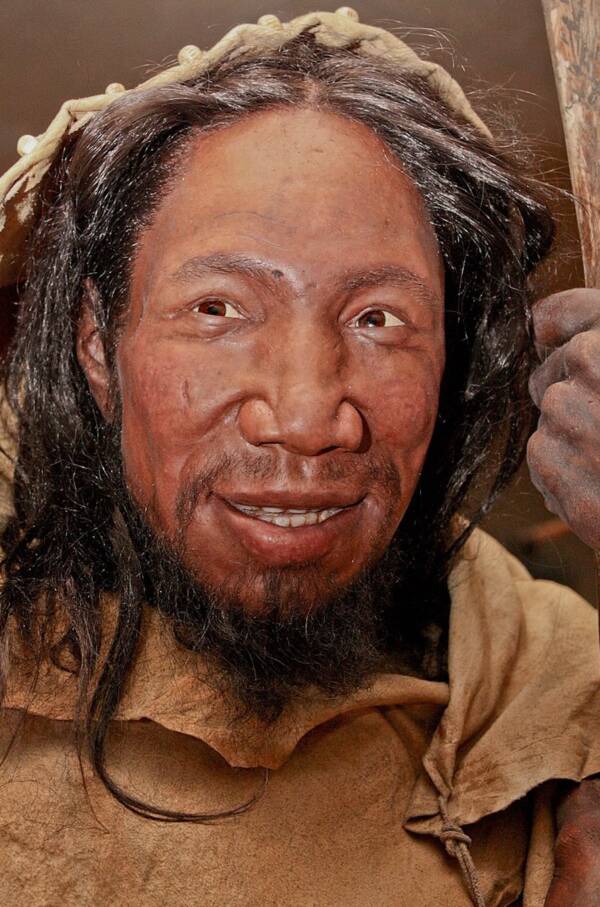"We've known for a long time that modern humans originated in Africa roughly 200,000 years ago... but what we hadn't known until the study was where exactly this homeland was."

Joachim Huber/FlickrA new study suggests the common ancestors of modern-day humans came from Botswana.
Each individual human being has a unique ancestral history, but a group of researchers set out to answer the ultimate question: Where do all humans come from? And it looks like they might have figured it out.
According to Al Jazeera, researchers claim in a new study that they have successfully traced the homeland of all modern humans to a region in northern Botswana.
“We’ve known for a long time that modern humans originated in Africa roughly 200,000 years ago,” said the study’s co-author Vanessa Hayes, a geneticist with the Garvan Institute of Medical Research in Australia. “But what we hadn’t known until the study was where exactly this homeland was.”

PixabayScientists have long agreed that our ancestors originated from Africa, but the exact location remains debated.
The area that scientists have traced our supposed origins to is a place called Makgadikgadi-Okavango, where an enormous lake once stood. Scientists believe the area — now a network of flat salt pans — was home to a population of modern humans for at least 70,000 years.
“It’s an extremely large area, it would have been very wet, it would have been very lush,” Hayes said. “And it would have actually provided a suitable habitat for modern humans and wildlife to have lived.”
Some of the population began to migrate about 130,000 years ago after the region’s climate started to change, thus sparking the first migration of humans out of the continent.
Scientists suspect there were waves of separate migrations, first toward the northeast and then toward the southwest.
These early waves of human migration were determined based on hundreds of mitochondrial DNA — the part of a person’s genes passed down from their mother — of living Africans.
So how did the scientists trace our common ancestors back to Botswana? According to the study published in the journal Nature, researchers used modern genetic distributions to trace a specific lineage all the way back to its homeland origins.

Wikimedia CommonsArtistic rendering of a Homo Sapien man.
In this case, they analyzed DNA samples from 200 Khoisan people, an ethnic group in South Africa and Namibia, who carry a high amount of the L0 DNA. The L0 DNA is believed to be the oldest traceable DNA present among modern-day humans.
Researchers then compared DNA samples with data from other external factors, such as climate change, geographical distribution, and archaeological shifts to create a genomic timeline. The timeline suggested a sustained lineage of L0 that stretched back 200,000 years.
One of the biggest hurdles for scientists in tracing human ancestry is navigating the different migrations that occurred when ancient humans were roaming the Earth. But Hayes sees these migration events as “timestamps” on our DNA.
“Over time our DNA naturally changes, it’s the clock of our history,” Hayes explained to AFP.
It’s an exciting discovery for humankind, no doubt. But not everyone is convinced of the study’s conclusion. For one, there have been humanoid fossil remains believed to pre-date the L0 lineage benchmark.
There are also complexities brought on by several factors that researchers need to consider when trying to narrow down the source of our collective DNA, as researcher Chris Stringer from the UK’s Natural History Museum noted:
Some thoughts on a southern African wetlands origin for modern humans (Nature) pic.twitter.com/GYujLFvEL4
— Chris Stringer (@ChrisStringer65) October 28, 2019
“Like so many studies that concentrate on one small bit of the genome, or one region, or one stone tool industry, or one ‘critical’ fossil, it cannot capture the full complexity of our mosaic origins, once other data are considered,” Stringer said in a statement posted on Twitter.
Stringer argued that previous findings have suggested that the Y-chromosome in modern humans likely came from West Africa, not Southern Africa where Botswana is, which underscores the possibility that our ancestors came from multiple homelands instead of one.
He also cited a separate study published in the journal Science that suggested “southern African populations did not represent ancestors for the rest of humanity, and out-of-Africa populations originated in East Africa. In any case, both of Stringer’s arguments could potentially rule out Botswana as the origins of modern humans.
There is still much debate on the subject — and more research to be done — but studies that seek to determine where we came from all help us get closer to finding out our prehistoric origins.
Next, read about the “ghost DNA” found in some Pacific Islanders that can’t be traced to any known human ancestor and the 90,000-year-old hybrid of two extinct human species scientists recently discovered.





